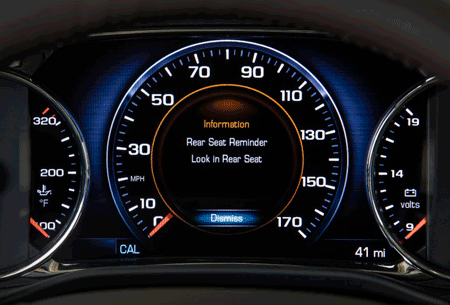
As the world becomes more connected, so too do our vehicles. The term "smart car" no longer refers solely to the city-centric vehicle manufactured by Mercedes-Benz, but rather is a title shared by the entire fleet of connected cars that are hitting our roads in 2017 and beyond. Here are some of the smart car trends you can expect to see more of in new vehicles.
1. Cars that communicate
Auto manufacturers across the board are beginning to implement, and in some cases have already rolled out, in-car personal assistants that can help drivers with everything from locating the nearest burger shack to connecting with smart devices inside their homes.
Ford has announced it will be expanding its use of the digital personal assistant platform Alexa in several new vehicle models, while General Motors will be rolling out Watson, IBM's AI platform, in its vehicles starting early next year (Fortune.com). Numerous other manufacturers including Toyota, Mazda and Suzuki have announced plans to implement digital personal assistants via a shared ecosystem across all participating manufacturers. It is only a matter of time before all vehicles have an AI component to assist drivers.
2. Life saving reminders
According to the
Canada Safety Council, 37 children in the United States die from heat stroke after being left in vehicles each year. Similar data is not available for Canada, but we are not immune to the tragedies here. Dogs are also extremely vulnerable to heat, and just a few minutes in a hot car can cause irreparable brain damage and death (
Ontario SPCA).
That's why auto manufacturers like General Motors are stepping in with smart features designed to remind drivers to check the backseat. This Rear Seat Reminder feature will become standard across all 2017 and 2018 models for many GM vehicles including Buick, Cadillac, Chevrolet and others. At this time, the reminder is a visual one as it cannot yet detect if a child or an animal is actually in the back seat.
3. Semi-autonomous vehicles
We've got a ways to go before autonomous/driverless cars become a mainstay on our roads, but that doesn't mean the technology doesn’t exist.
Manufacturers like Tesla already have the technology in place—just check out this video of a car on autopilot driving through a neighbourhood to see how developed this tech has become—and they're hardly the only ones working on the advancement of vehicle autonomy. Ford plans to have autonomous vehicles mass-produced by 2021 (Tech Crunch). Other auto manufacturers and tech companies including Google and Apple share similar ambitions.
However, until autonomous vehicles are legally allowed on our roads, semi-autonomous features will have to suffice. ANumerous vehicles already have driver-assistant technology including animal and pedestrian sensing, collision prevention, automatic braking and self-parking, and we can expect more smart features to come in the near future.
4. Biometrics
It used to be that eye-scanning and fingerprint recognition technology seemed like something reserved for high ranking government officials, but if you have a smartphone you already know that this biometric data is used everyday to allow smartphone users access to applications and personal data.
Imagine a vehicle that unlocks by scanning your eyes or your fingerprints—an ideal feature for somebody who is prone to losing their keys, or a car that uses your biometric data, such as your heart rate, to personalize your driving experience and possibly even prevent accidents? That's the future of biometrics, according to Ford Motors. The manufacturer is studying the use of biometric monitoring devices in vehicles to reduce injuries and deaths on the road.
5. Personalized experiences
Drivers want more personalized driving experiences and the technology is here to deliver, a recent study out of the UK found. As in-car technology incorporates more artificial intelligence (including the ability to learn and understand a driver's driving habits) a "more humanized driving experience" will reveal itself. Drivers surveyed expressed desire for in-car features including automatically helping drivers navigate roads, getting live traffic updates on the go, and remembering route preferences.
GM has even filed a patent that would allow drivers to carry personalized datasets from one vehicle to another, or from one driver to the next, allowing for a more customized driving experience. This is an extension of telematics, the integration of vehicle data and communication technology, which is already being used by some companies to deliver a more tailored car insurance user experience.
Are you looking to buy a new smart car? Visit OTIP today for your free online car insurance quote with exclusive rates for educators.